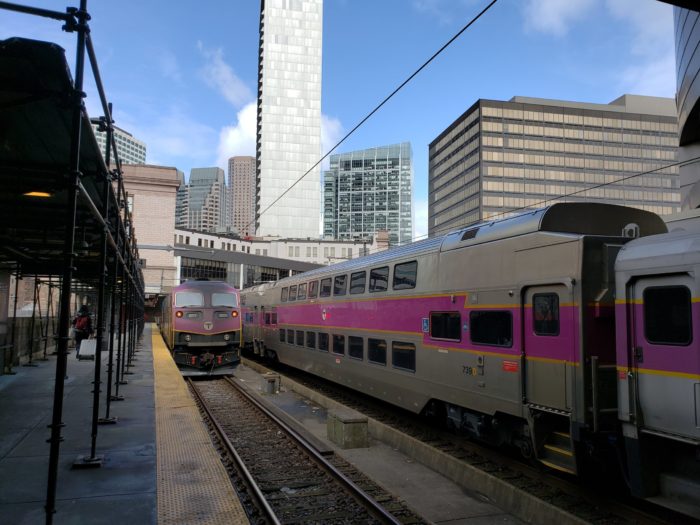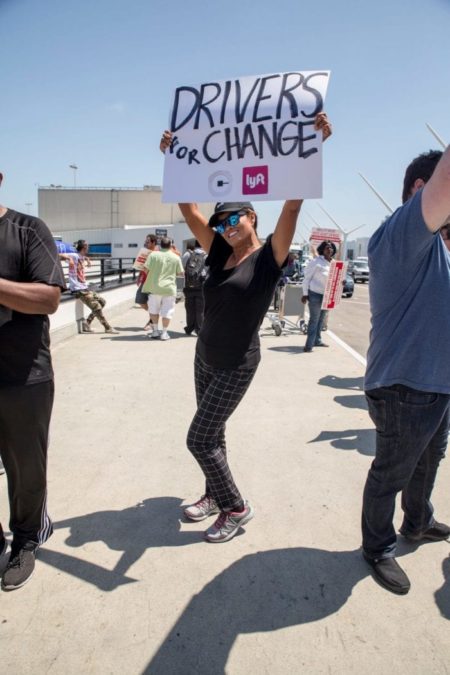
“Transportation as we know it is going to be changing.”
LOCAL
COVID-19 may finally put down Boston’s last remaining taxis like a sick dog after years of losing ground to rideshare applications.
The hackney industry was already in trouble when self-quarantine and lockdowns became widespread throughout the region, according to Donna Blythe-Shaw, the former representative for the Boston Taxi Drivers Association. Blythe-Shaw retired in 2016 after the association disbanded as more and cab owners were forced into bankruptcy.
The city of Boston recognizes 1,825 taxi medallions, but only 1,016 of them are officially in use, according to a Boston Police spokesperson. As of Nov 12, 809 medallions were no longer in use.
Earlier this year, before COVID-19 came to the region, there were calls from cab owners for the state to release funds that were collected from Uber and Lyft as far back as 2016 when the law creating the fund was signed. Four years later, the cab industry was still waiting for the first payout from the reportedly $7 million reserve, which is overseen by MassDevelopment, the Commonwealth’s “economic development and finance authority.”
The state agency finally announced the first round of awards on Nov 12, spreading about $1 million across 25 different cities and towns. Boston received $71,409 that is designated for the Boston Public Health Commission to finance meal deliveries and transportation for essential workers. Somerville received $46,800 to the city and $75,000 to the Somerville Council on Aging to support prescription and grocery deliveries. Cambridge was left high and dry.
“The cab industry will never come back. Transportation as we know it is going to be changing,” Blythe-Shaw told DigBoston. “The cab industry had been decimated since before the pandemic. Cab drivers have caught COVID. A few died that I know of.”

STATE
The Massachusetts Bay Transportation Authority announced on Nov 9 that it was planning severe service cuts in response to the drop in ridership this year amid COVID-19.
Some of the proposed changes include cutting off subway and bus service at midnight, reducing train frequency by 20% across all lines, and stopping E Line service at Brigham Circle. Commuter rail lines will no longer operate on the weekends, and weekday service will stop at 9 pm. All ferry service will also be halted.
There’s no real silver lining to the gloomy plans, other than that the proposal is not final and public transportation patrons and advocates will have several opportunities to yell at the MBTA board through Zoom in November and December (mbta.com/forging-ahead).
“We have worked hard to define a ‘basic’ level of service, but it is critical to hear from you, our customers and stakeholders, on whether we got it right and will still be providing the services you currently need,” MBTA General Manager Steve Poftak wrote in an open letter announcing the proposed cuts.
Transportation for Massachusetts, LivableStreets, and the Alliance for Business Leadership joined forces to rally in front of MassDOT’s downtown headquarters on the same day that the proposed cuts were announced. Together, they called on the state to reconsider.
“The MBTA has proven itself as an essential service through the pandemic, and it will be essential to the Commonwealth’s economic recovery,” said Angela Johnson-Rodriguez, a statewide organizer for Transportation for Massachusetts. “We need the state legislature to step up to prevent drastic cuts that will leave people stranded.”

NATIONAL
Taxis and public transit may be falling by the wayside, but at least there will still be underpaid Uber and Lyft drivers to serve those in need of transportation.
The gig-economy tech giants sank at least $200 million into the campaign to successfully convince California voters to pass Prop 22, which exempts Uber, Lyft, Doordash, and other similar gig-economy companies from having to classify their workers as employees. The distinction allows the enterprises to deny their employees benefits such as health insurance.
Two days after the election, Uber CEO Dara Khosrowshahi celebrated the passing of Prop 22 on an investor call, specifically noting that the company has plans to spread similar laws to other states.
“Going forward, you’ll see us more loudly advocate for new laws like Prop 22, which we believe strike the balance between preserving the flexibility that drivers value so much while adding protections that all gig workers deserve,” he said. “It’s a priority for us to work with governments across the US and the world to make this a reality.”
No on Prop 22 advocates announced plans to continue fighting for rights for independent contractors in the gig economy despite the loss at the polls.
“We may not have defeated Prop 22, but through this fight app workers across California have learned that we have power when we work together,” We Drive Progress member Saori Okawa said in a media statement. “We’ve seen how scared corporations are of us when we’re united, and we will continue our fight for the workplace rights and standards we need and deserve.”
Zack is a veteran reporter. He writes for DigBoston and VICE, and formerly reported for the Boston Courant and Bulletin Newspapers.

